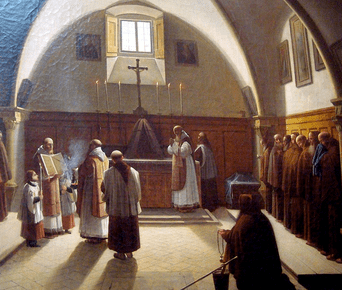
 E RECENTLY POSTED a Complete Proper of the Mass with Organ (1946) and it was downloaded more than 700 times. As a kind of “follow-up,” here’s an interesting article from 1933, with paragraphs like the following:
E RECENTLY POSTED a Complete Proper of the Mass with Organ (1946) and it was downloaded more than 700 times. As a kind of “follow-up,” here’s an interesting article from 1933, with paragraphs like the following:
On 16 January 1885, the Bishop of Lucan, France, put the following condition of his diocese before the Sacred Congregation of Rites: “Here in Lucan exists the custom of having High Masses daily. At these High Masses the choir omits the Gloria, Credo, Gradual, Tract and Sequence because the singers are usually one person and the people who attend are of the working class and we do not wish to detain them. May the method of singing High Mass above. described be continued or must it be done away with?” The Congregation answered: “The method is an abuse and must be done away with.”
Read the whole article — it’s only one page!
* * Why Sing The Proper Of The Mass? (1933) — PDF Download
Perhaps our contributor, Richard Clark, can weigh in with regard to their statements about the Archdiocese of Boston (in 1933):
And so our archdiocese stands forth with a record of 95% of its churches singing the Proper every Sunday. By degrees we are sure that the attitude of the Sacred Congregation of Rites — “No Proper? No High Mass.” — will become the rule every where in the archdiocese.
